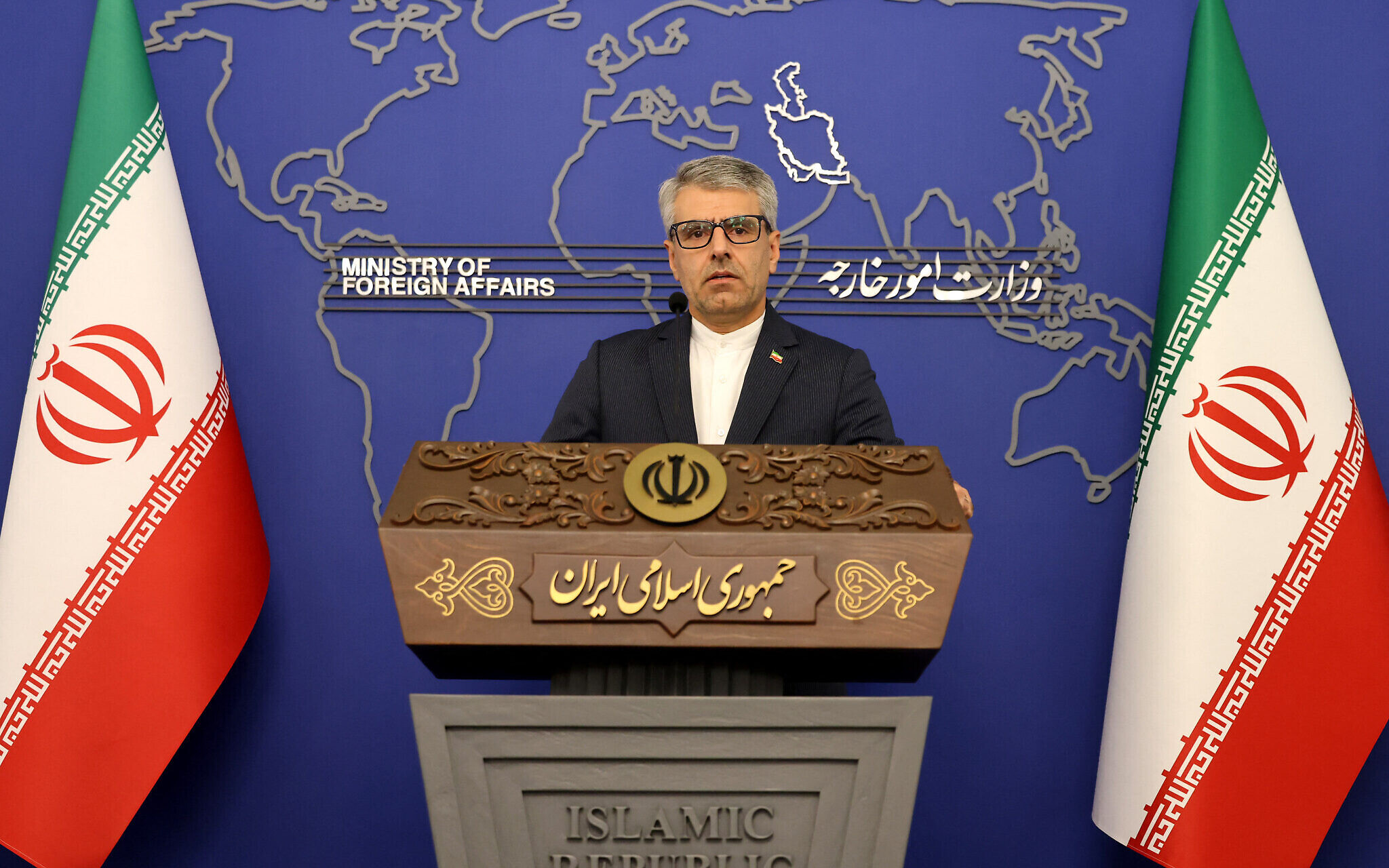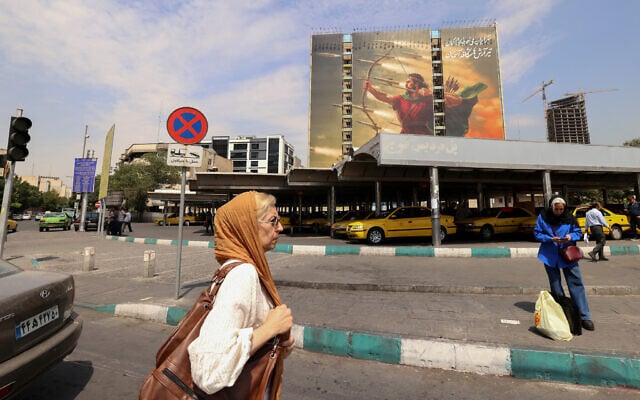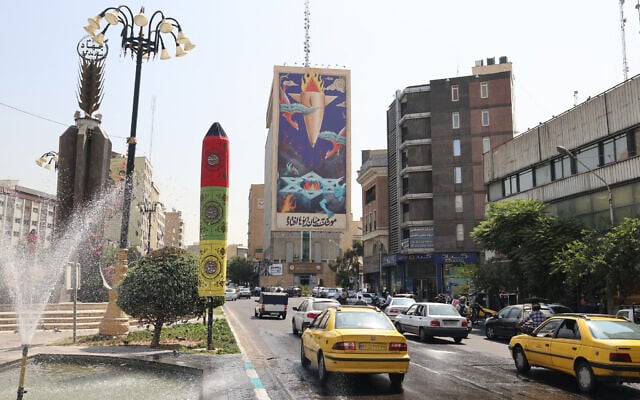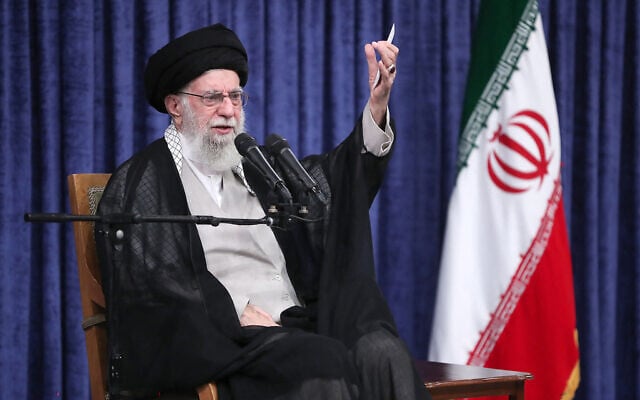



The United Nations’ nuclear watchdog will visit Iran within the next two weeks, Iranian Foreign Ministry spokesperson Esmaeil Baghaei said on Monday, a few days after the watchdog’s director said Tehran was ready to have technical conversations about resuming inspections following the Israel-Iran war.
Baghaei added that a manual regarding the future of Iran’s cooperation with the International Atomic Energy Agency will be presented, based on a recent parliamentary bill restricting such cooperation.
The bill, which has now become law, stipulates that any future inspection of Iran’s nuclear sites by the IAEA needs approval by Tehran’s Supreme National Security Council.
The IAEA has said it must be allowed to resume inspections after the 12-day war between Israel and Iran last month, and has expressed particular concern about the whereabouts of Iran’s stocks of some 400 kilograms (880 pounds) of highly enriched uranium. Rafael Grossi, who leads the IAEA, said in Singapore last week that Iran must be transparent about its facilities and activities.
He told reporters alongside a public lecture that the IAEA had proposed that Iran start discussions on “the modalities as to how to restart or begin” inspections.
“So this is what we are planning to do, perhaps starting on technical details and, later on, moving on to high level consultations,” Grossi said, adding that technical teams sent to Iran for talks will not include inspectors yet.

Israel said its sweeping assault on Iran’s top military leaders, nuclear scientists, uranium enrichment sites, and ballistic missile program was necessary to prevent the Islamic Republic from realizing its avowed plan to destroy the Jewish state. The US joined in with strikes on Iran’s uranium enrichment sites at the end of the war.
Iran has consistently denied seeking to acquire nuclear weapons. However, it enriched uranium to levels that have no peaceful application, obstructed international inspectors from checking its nuclear facilities, and expanded its ballistic missile capabilities. Israel said Iran had recently taken steps toward weaponization.
Iran retaliated to Israel’s strikes by launching over 500 ballistic missiles and around 1,100 drones at Israel. The attacks killed 29 people and wounded over 3,000 in Israel, according to health officials and hospitals.
Last week, Iran held talks over its nuclear program with France, Britain and Germany, as European diplomats warned “snapback” sanctions would be triggered against Tehran should it fail to allay concerns about its highly enriched uranium stockpile.
Iranian Deputy Foreign Minister Kazem Gharibabadi said after the “serious, frank and detailed” talks with the so-called E3 group on Friday that both sides had presented specific ideas on sanctions relief and the nuclear issue.
“While seriously criticizing their stances regarding the recent war of aggression against our people, we explained our principled positions, including on the so-called snapback mechanism,” Gharibabadi wrote on social media. “It was agreed that consultations on this matter will continue.”

On Monday, Baghaei said that Iran’s military capabilities were not up for negotiation, after France called for a “comprehensive deal” with Tehran that covers its missile program and regional influence.
“Regarding matters related to our defense capabilities, there will absolutely be no discussion,” Baghaei said.
Iran generally refers to all military activities, including its ballistic missile program, as defensive.
On Sunday, French Foreign Minister Jean-Noel Barrot told CBS News show “Face The Nation” that Western governments were seeking a “comprehensive agreement” with Iran, in part to avert the “risk” that it could covertly pursue a nuclear weapon.
Barrot said such an agreement would include “the nuclear dimension” as well as the “ballistic component” and “the regional destabilization activities that Iran has been conducting,” referring to armed groups backed by Tehran across the Middle East, including terror groups that seek Israel’s destruction.
“Unless a new and robust and durable and verifiable agreement is reached by the end of the summer, France, Germany and the UK will have no other choice but to reapply the global embargo that were lifted 10 years ago,” said Barrot.

In addition to the European talks, prior to the war in June, Iran and the US held five rounds of talks mediated by Oman, which were suspended as a result of the conflict.
Baghaei reiterated Iran’s position that it would resume indirect talks with the United States if its national interest required it, but said there currently were no plans to hold a sixth round of nuclear negotiations with Washington.
The talks were characterized by major points of contention, such as Washington’s request that Tehran stop its domestic uranium enrichment.
Baghaei said on Monday that as a member of the Nuclear Non-Proliferation Treaty, Iran should be allowed to enrich uranium. Iran has repeatedly threatened to leave the treaty, which commits it to refrain from developing nuclear weapons, if sanctions return.
“One cannot expect a country to remain in the treaty while being deprived of its stated rights, particularly the peaceful use of nuclear energy,” he said.
